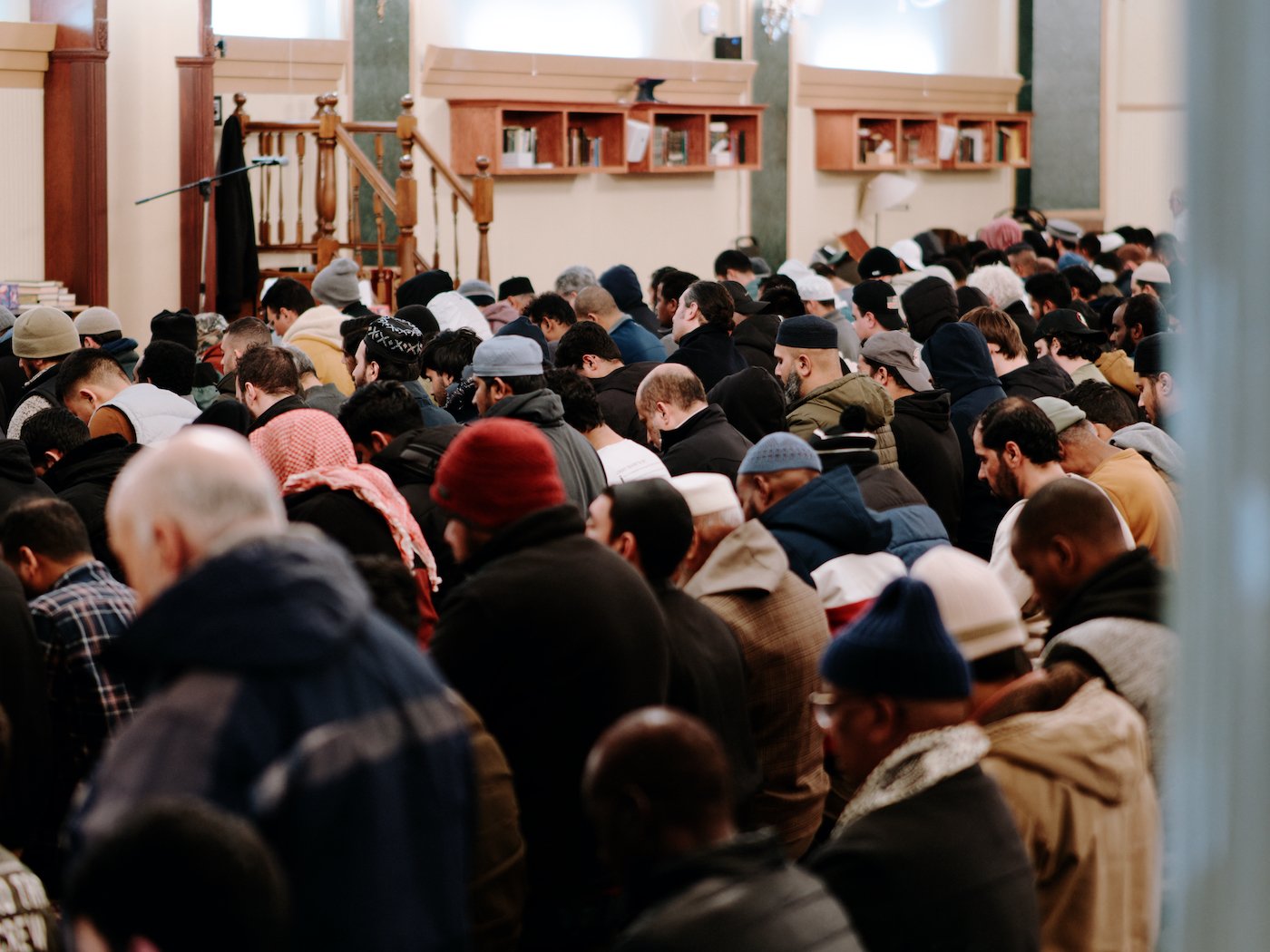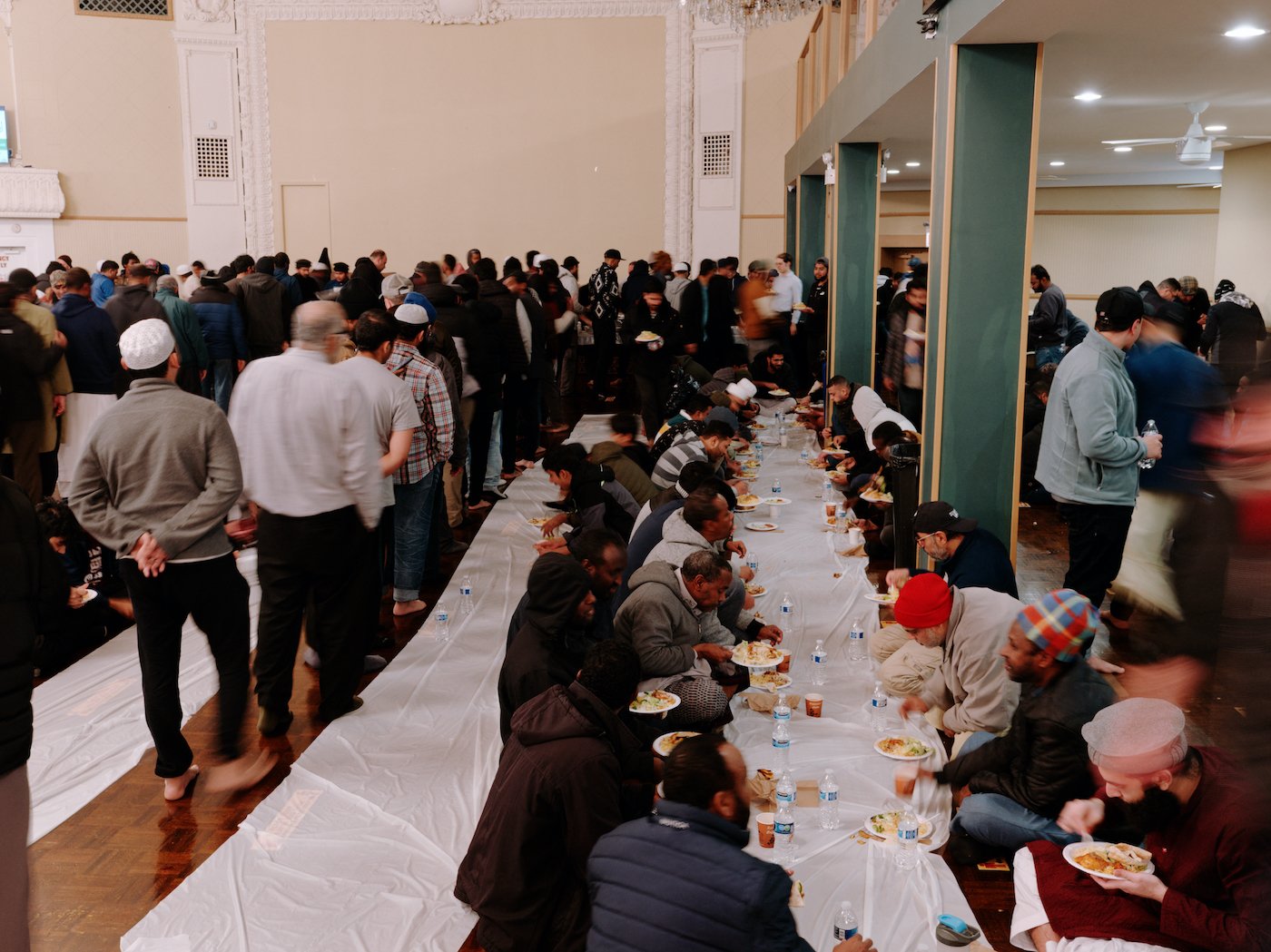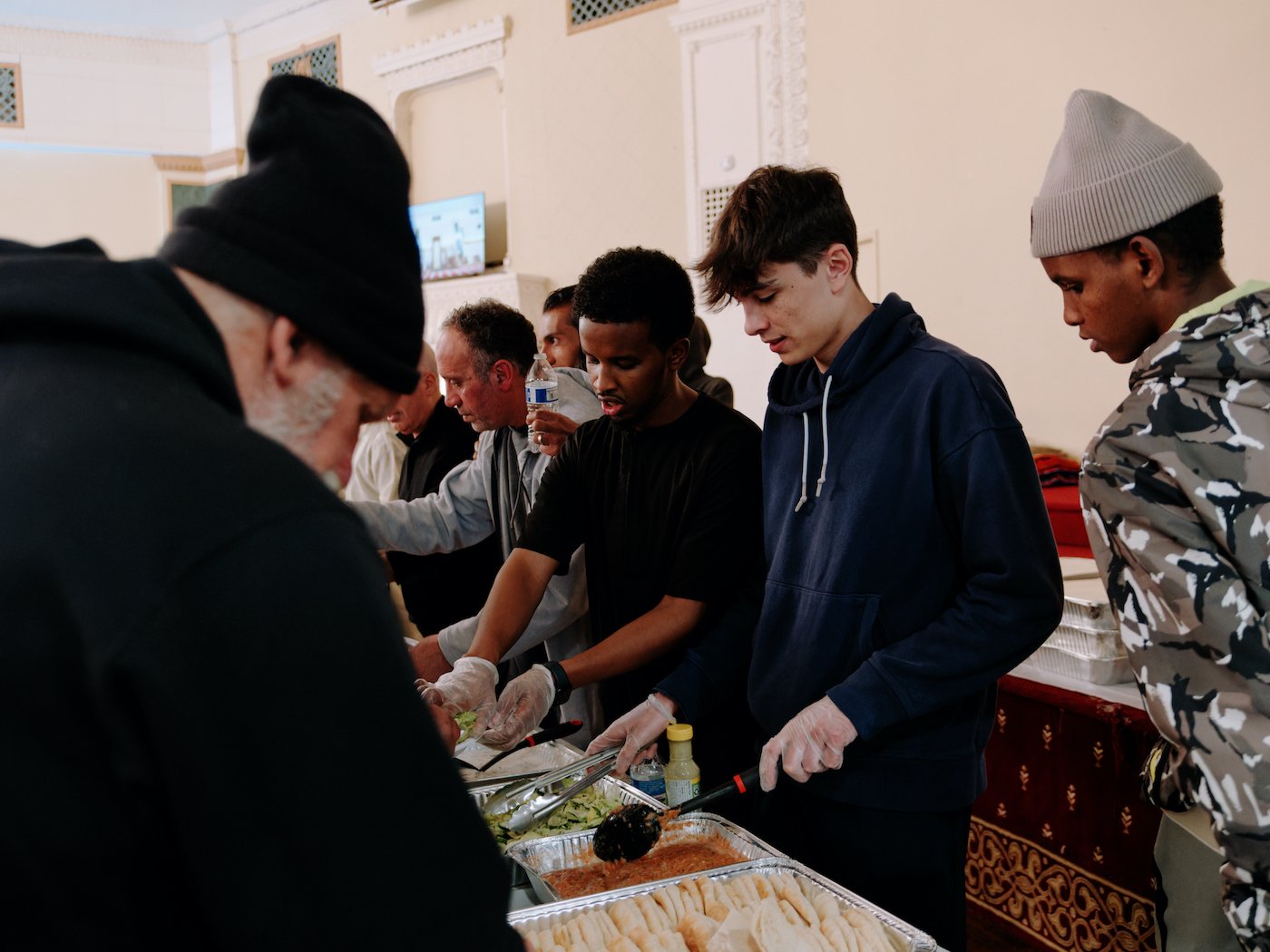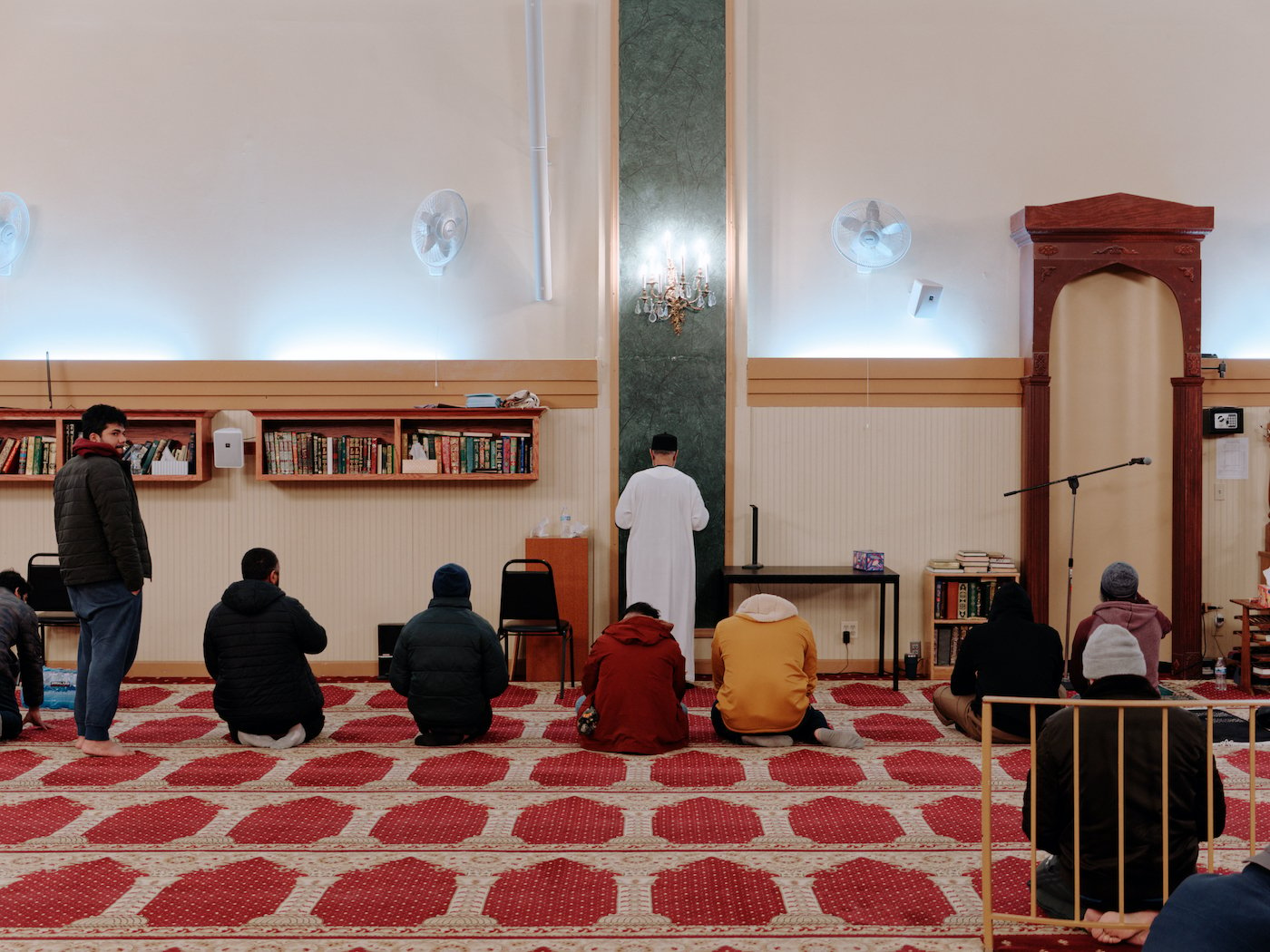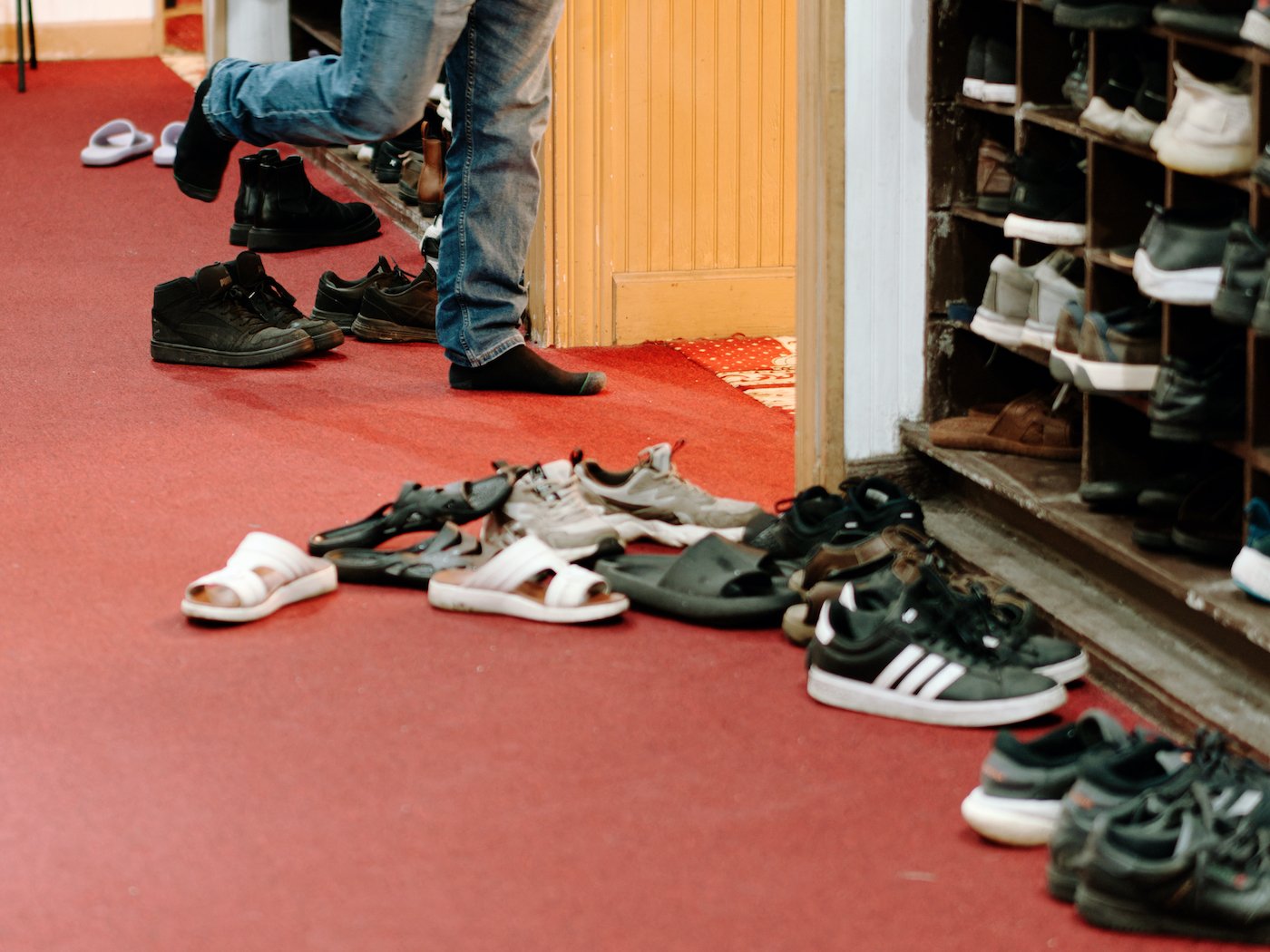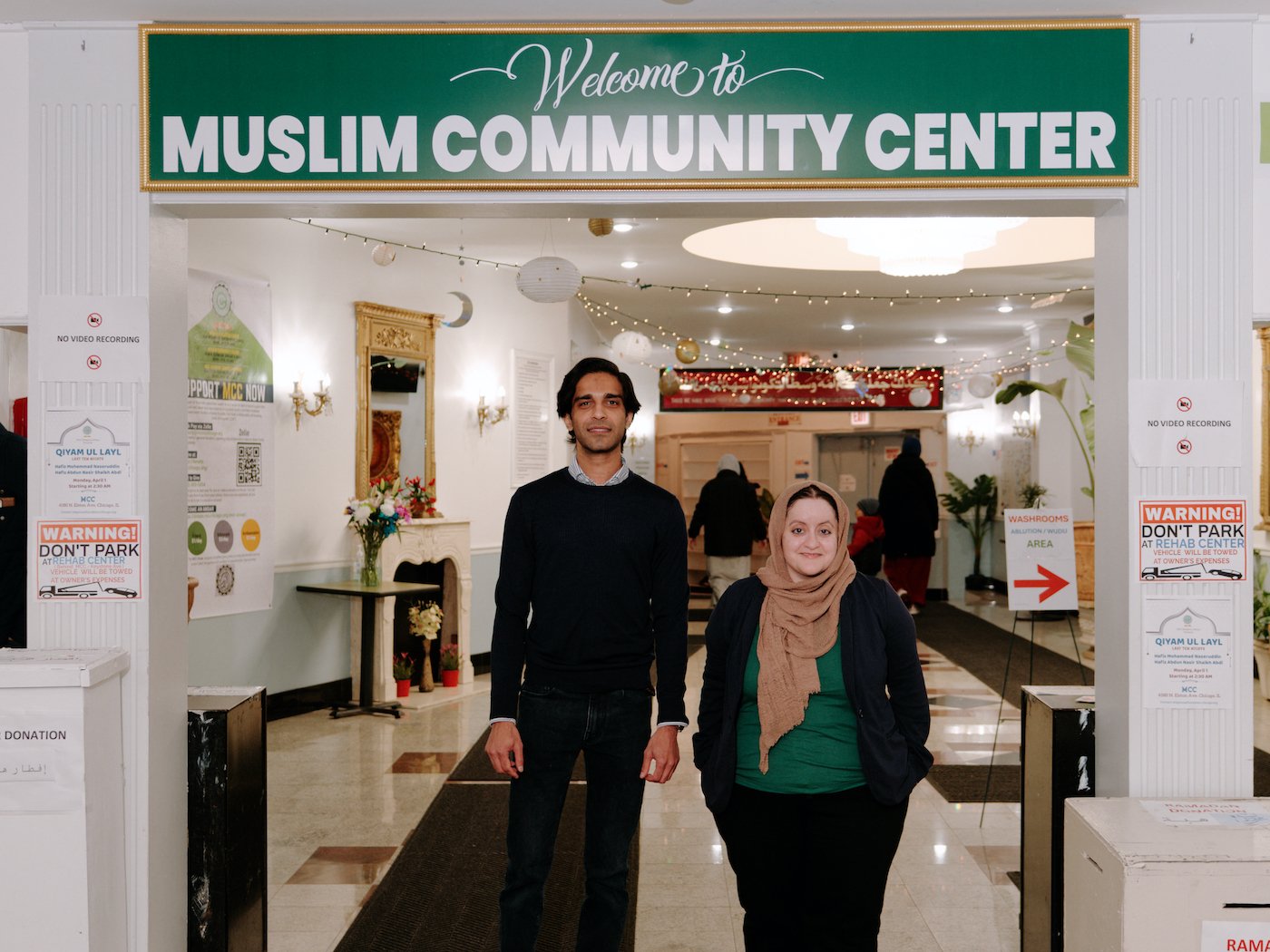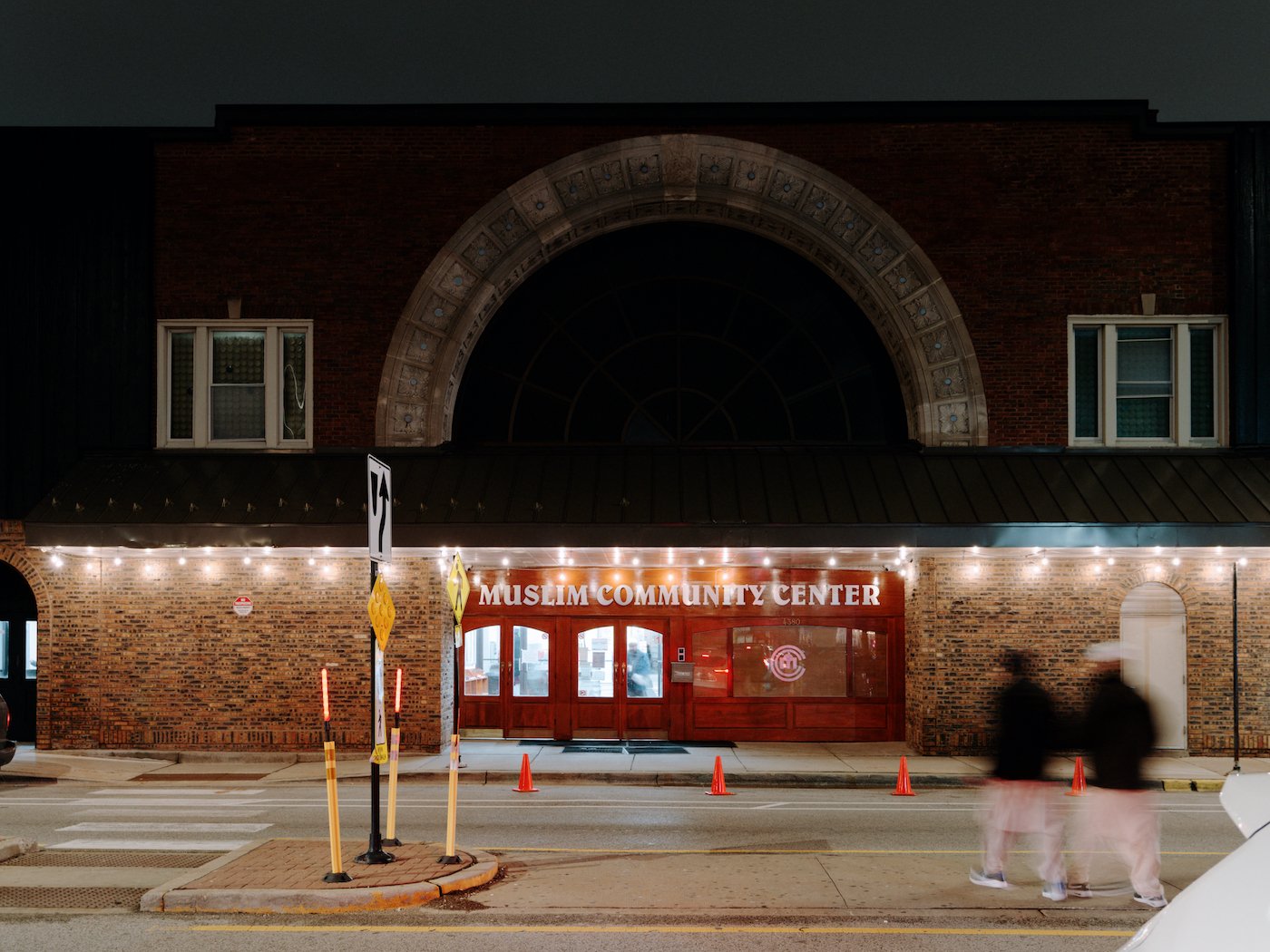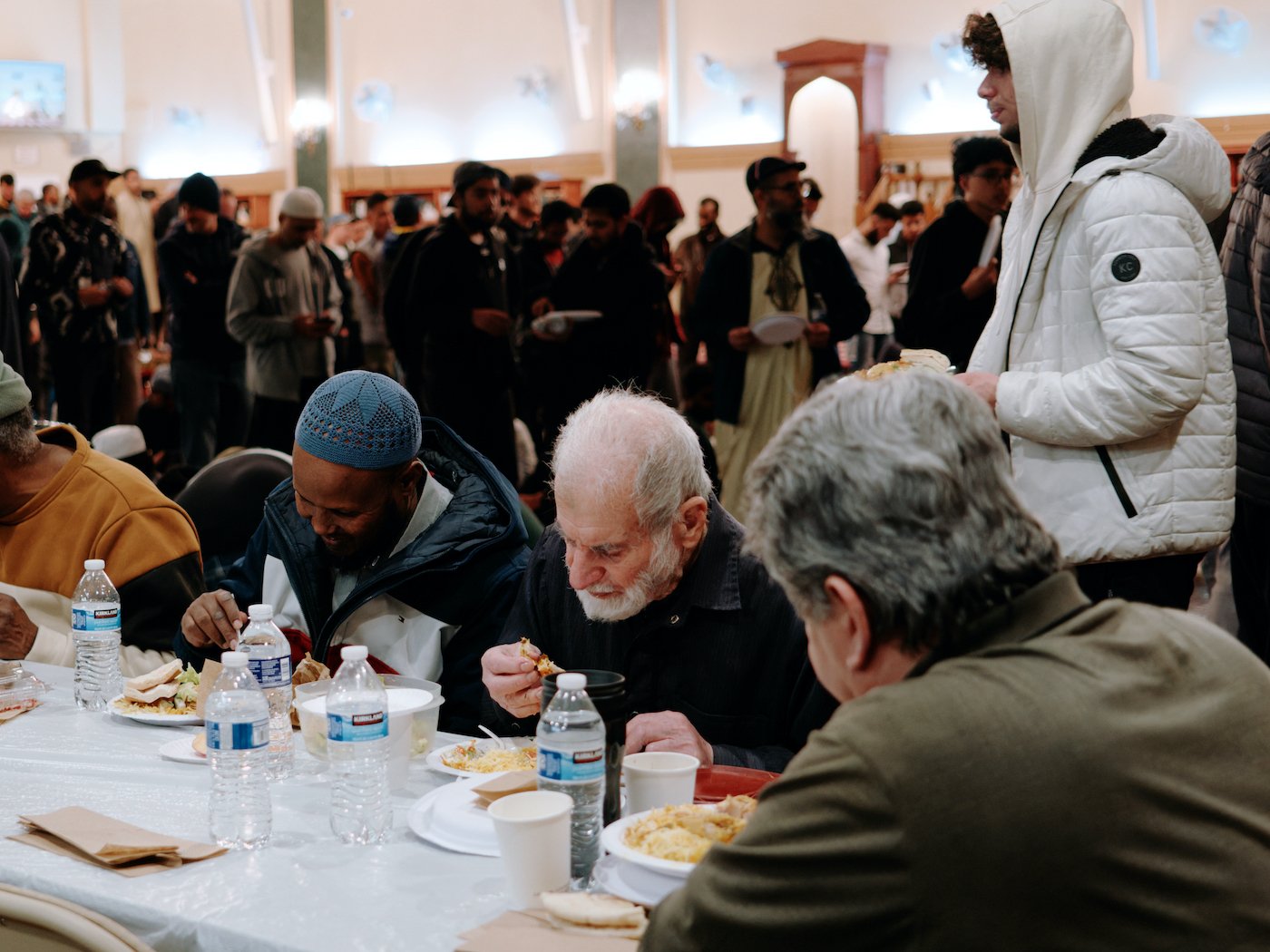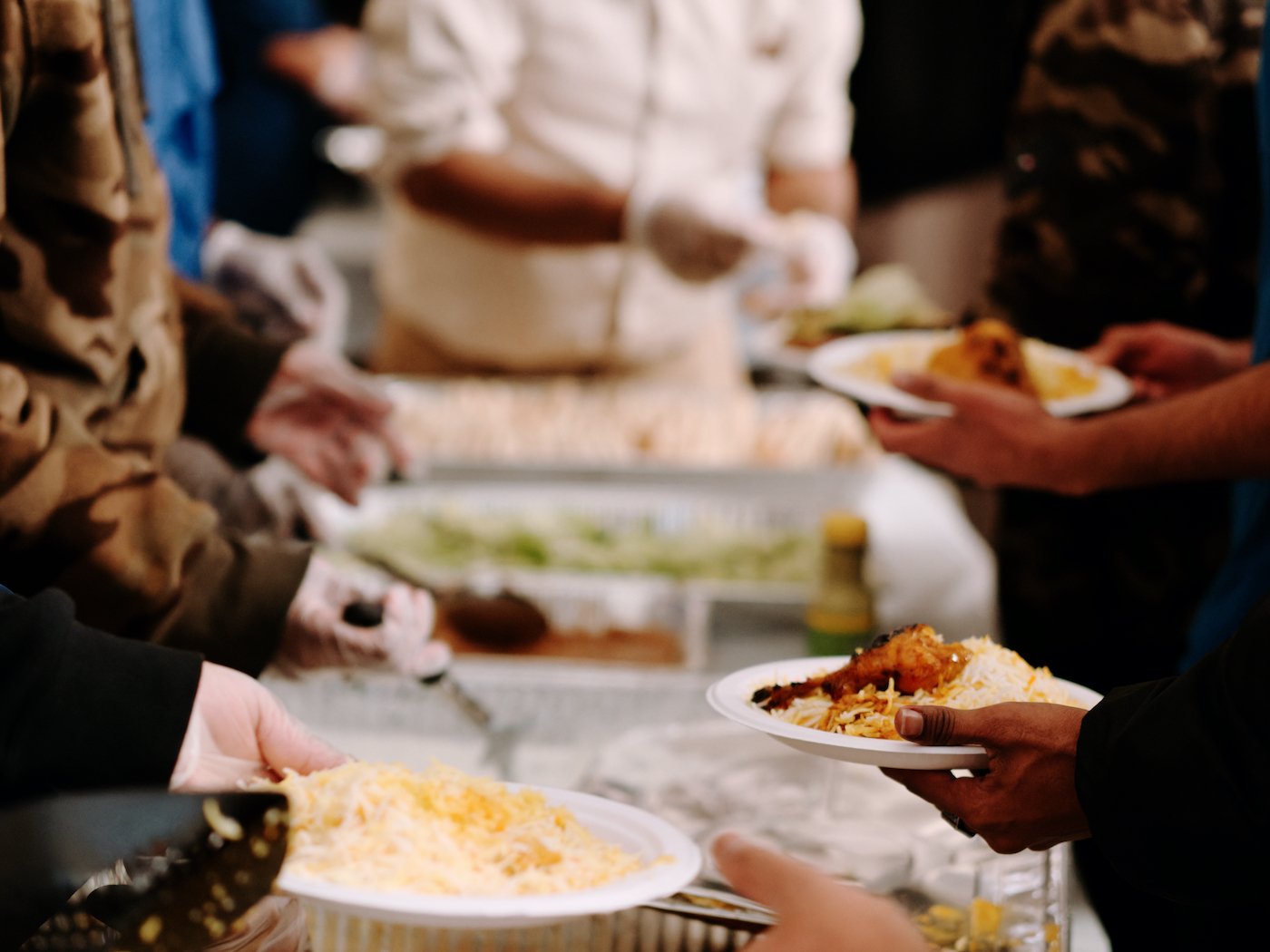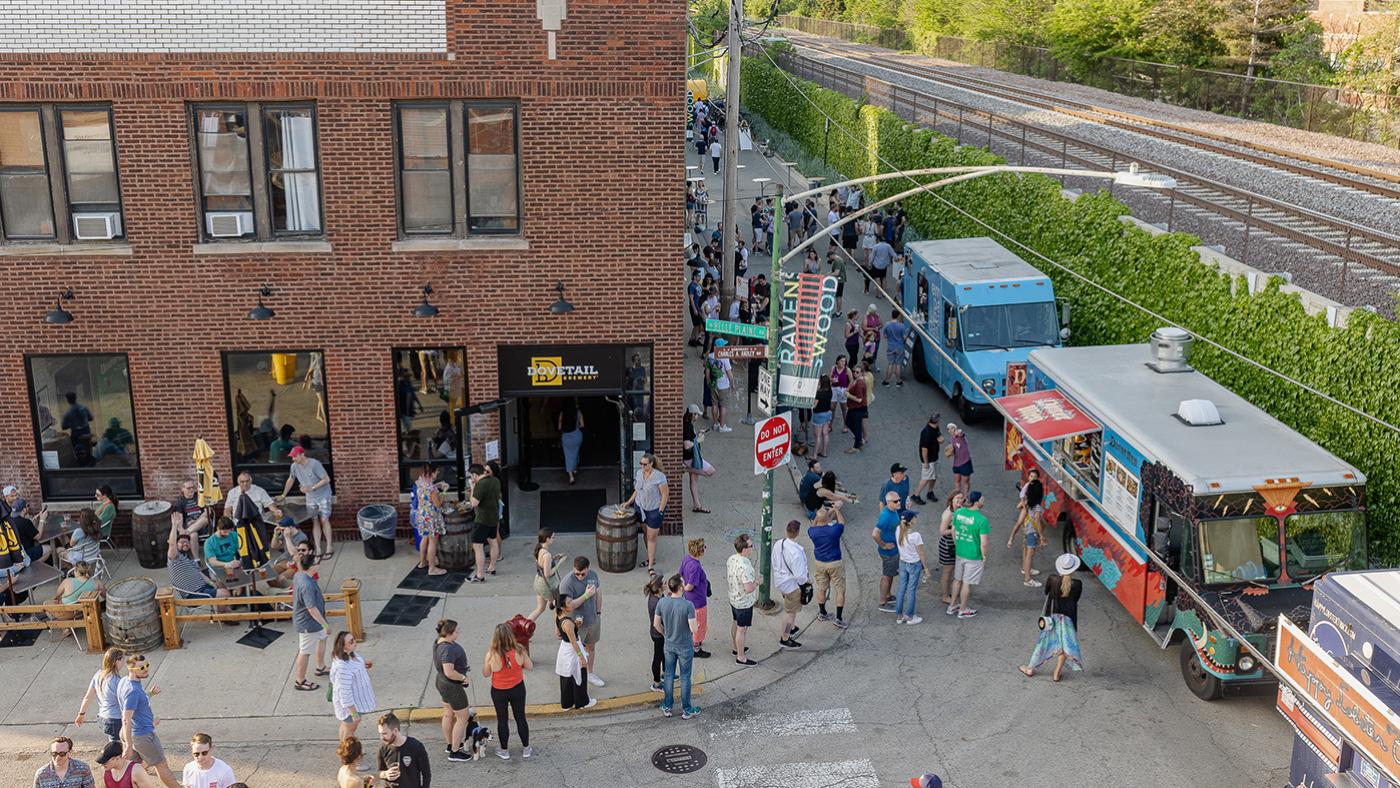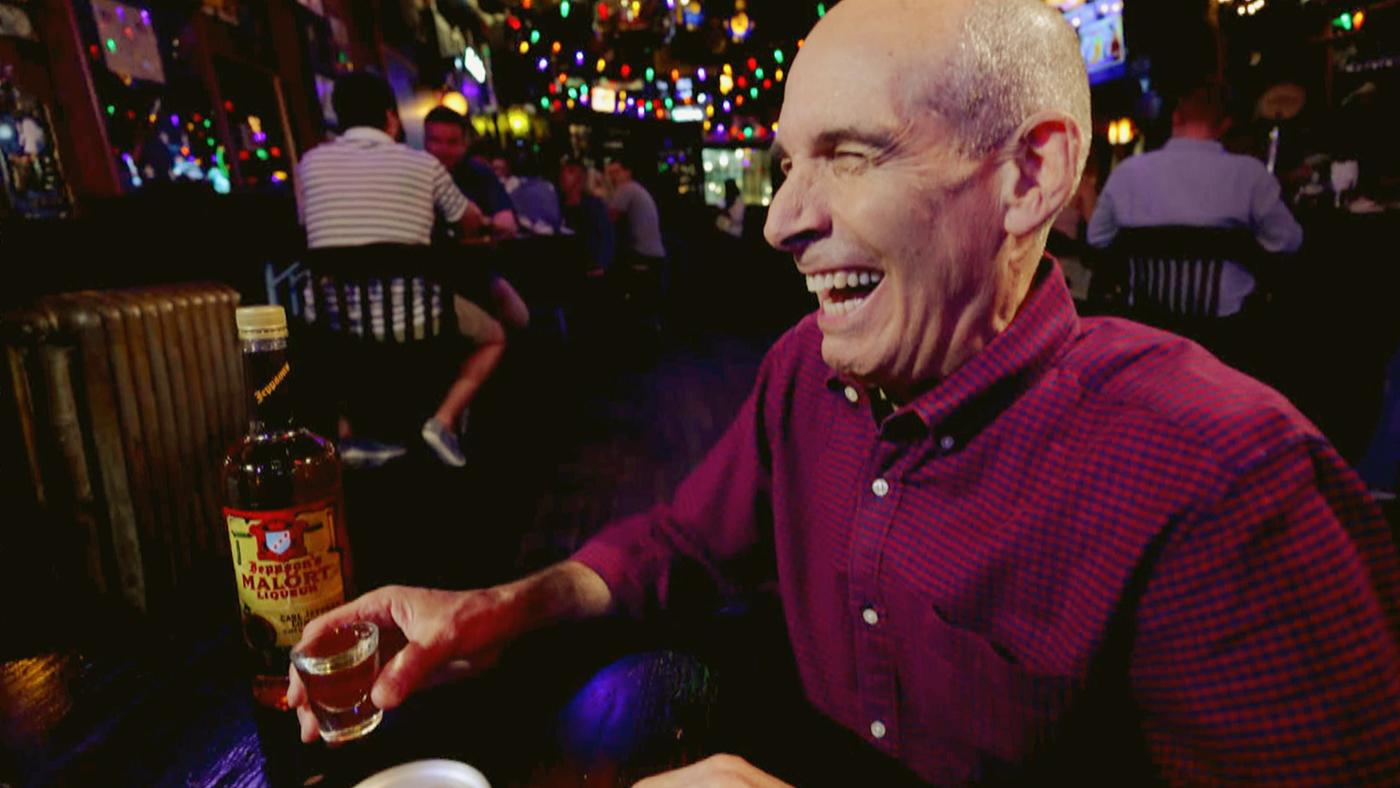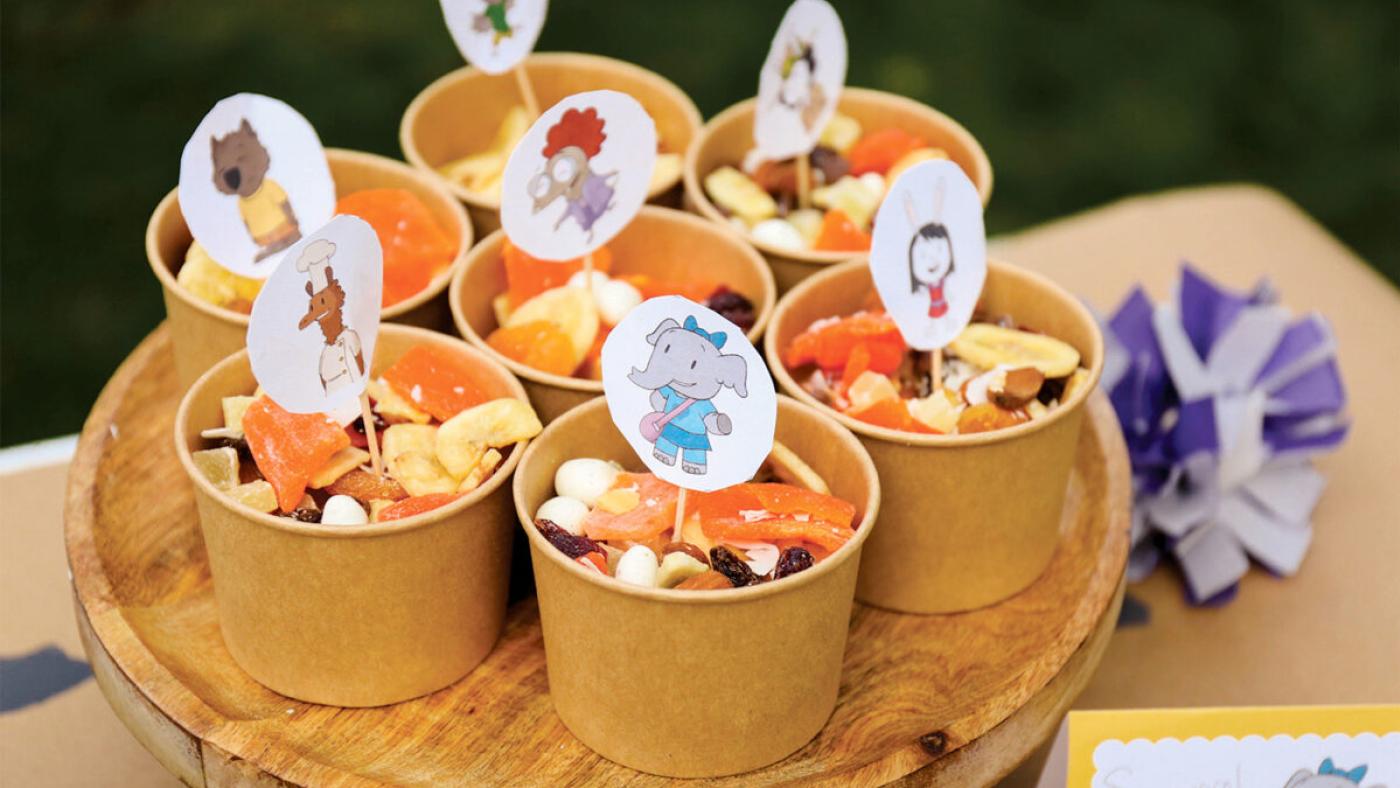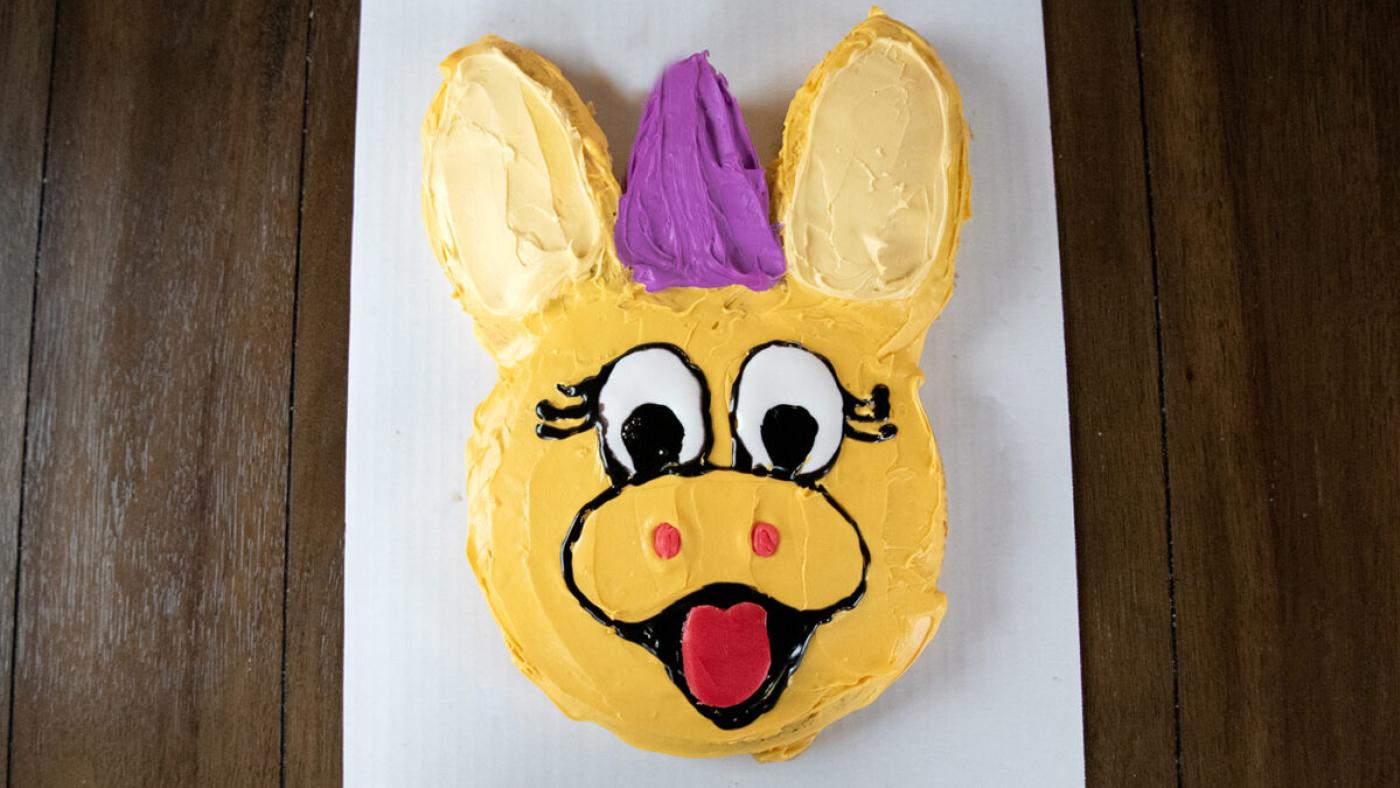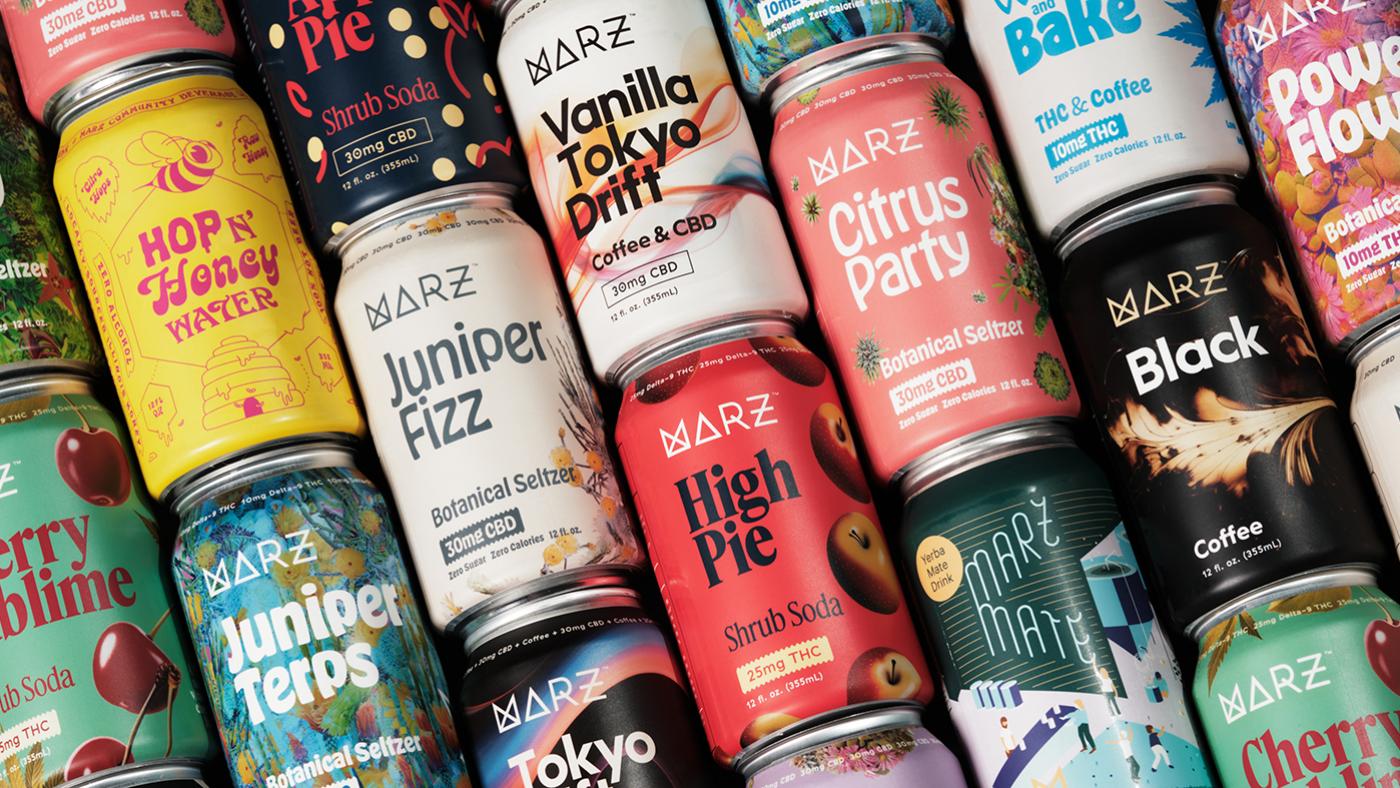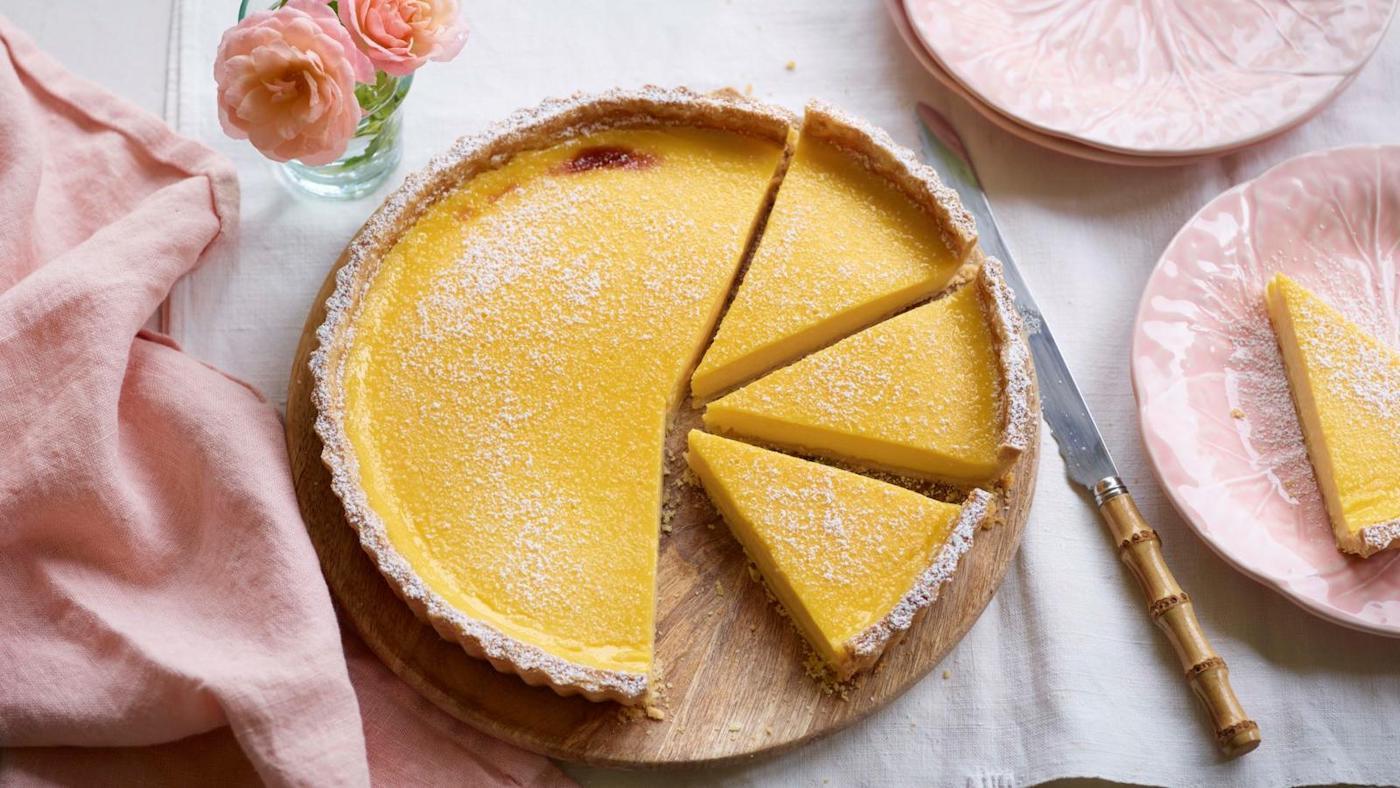"Ramadan is a Whole Way of Life": Breaking the Fast and Feeding Those in Need with the Muslim Practice of Iftar
Daniel Hautzinger
April 9, 2024
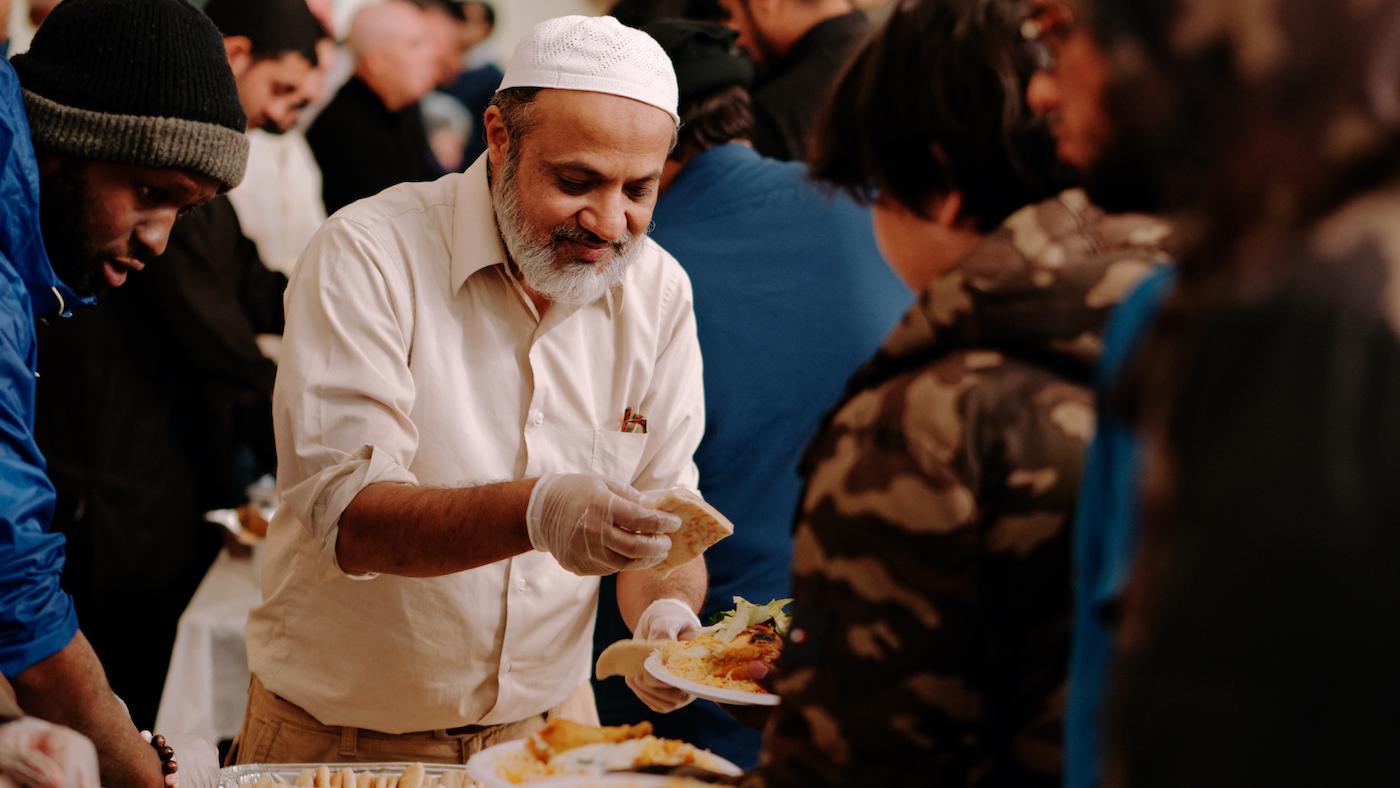
Get more stories of cultural traditions and food by signing up for our Deep Dish newsletter.
Around sundown every night during the holiest Islamic month of Ramadan, Muslims gather at the Muslim Community Center (MCC) in Mayfair to join the maghrib prayer and break the fast they have held since dawn. As men enter the historic building on Elston Avenue, they are handed a date, the traditional fast-breaking foodstuff, before performing ablutions and taking off their shoes to enter the prayer hall that was once a theater auditorium. As they greet friends and newcomers alike, they grab a plate of fruit and cup of chai thickened with condensed milk and sit in rows on the floor of a depressed section of the hall to eat over long sheets of plastic and enjoy the sustenance they have foregone while the sun was up.
Dressed in everything from hoodies to thobes, they then ascend to a red-carpeted area and take part in the maghrib prayer. They line up in rows delineated by arches depicted on the carpet behind an imam who leads the prayer and recites a passage from the holy book of the Quran from memory on a reverb-laden microphone. Men continue rushing in, adding to the parallel rows, as everyone proceeds through verbal responses, bows, and prostration, with those unable to kneel sitting in chairs. Even on a Tuesday evening, the rows of men almost reach the back wall by the end of the prayer, not including the women who are behind a translucent barrier on a balcony above.
When the prayer has ended, orderly lines form between the sheets of plastic to receive a full meal bountifully plated by volunteers behind a line of tables. The men settle back into place on the floor along the plastic, at a few tables, on rolled-up rugs, or wherever they find space under the ornate chandeliers. Numerous languages murmur in the hall as they finally fill their bellies, while the women do the same in a different room.
This is iftar, the meal that breaks the obligatory fasting that adult Muslims who are able undertake during the daylight hours of Ramadan. “It allows you to put yourself in somebody else’s shoes, where they will have [just] that one meal a day,” says Amal Muhsin, a member of MCC and a chair of its charitable programs. (Many Muslims also eat a predawn meal during Ramadan called suhur.) “There’s folks out there that have nothing.”
MCC tries to help some of those struggling people in numerous ways, including by providing them iftar. As the sun approaches the western horizon each evening of Ramadan, volunteers from MCC gather at a restaurant to pick up family-style meals portioned for six people that have been paid for via donations from MCC members and additional supporters. They pack the food into their cars and spread out across the city to drop it off with thirty families who have applied for aid so that they, too, can break their fast instead of foregoing food all together. The recipients might be recently arrived refugees, or immigrants who aren’t eligible for food stamps because they don’t have paperwork, or simply a family that has fallen on hard times, and they come from all across the globe.
“Sometimes ‘iftar’ is one of the only words in common,” says Muhsin, since recipients might not speak the same language as the deliverer, or they might not speak much English yet. Muhsin often works through a translator, but also finds herself using Google Translate constantly – including at MCC itself, where some 28 languages are spoken, according to her.
“It’s like Ellis Island,” she says. “There’s always a new group coming in”: Rohingya, Syrians, Africans, people from the countries of the Central Asian steppes, in addition to those from South Asia, the Middle East, and the Balkans who are already here and continue to arrive. Her charitable programs co-chair Azim Gandhi says the only mosque where he has seen more diversity – and he has visited many across the world while traveling for work – was the Masjid al-Haram in Mecca, the holiest site in Islam, which Muslims are required to visit once in their lifetimes if possible in the pilgrimage known as hajj.
“It’s a weirdly beautiful thing to see,” says Muhsin of observing people from so many different parts of the world all practicing the same religion together in a single place. She sometimes pauses on the balcony above the prayer hall where women join prayers to watch the men line up for iftar after maghrib. “Where else do you see people getting along so well in a line?” she says with a laugh.
MCC is one of the oldest Islamic organizations in the Chicago area, having been founded in 1969. Today it has three locations: in Mayfair in Chicago, and Morton Grove and Skokie in the suburbs. There are about 1,400 members who contribute to MCC, according to Muhsin, but attendance at prayers or Friday services at the mosques can be more than double that; anyone is welcome. As the name “Muslim Community Center” implies, it is much more than a mosque: it runs schools, provides services such as counseling and health screenings, hosts job fairs, offers a safe space for youth to hang out, organizes various charitable programs, and oversees marriage and funeral rites. Muhsin said that the Cook County Coroner even sometimes reaches out to MCC because they might have more information on a deceased person who has no immediately identifiable family, as that individual might be known through one of the MCC’s charitable programs.
Those programs grow out of the Islamic concept of zakat, which is one of the five pillars of Islam – alongside fasting at Ramadan (sawm), hajj, prayer (salat), and the declaration of faith known as Shahadah. “Essentially, it’s giving charity back to the needy,” says Gandhi of zakat. It can be given throughout the year, but Ramadan is a typical time in which to give, being the month in which Muslims believe the Quran was revealed.
“Ramadan is a whole way of life,” says Muhsin. Much of it is “dedicated around making yourself a better person, and around prayer, and the actions that you do.” People might try to give up an addiction, or address personal or professional issues during the month, in addition to fasting and perhaps volunteering and giving zakat. “It’s a whole atmosphere of ensuring that we get the best out of this month so it can help with the other eleven months,” she says.
Money from zakat allows MCC to run everything from a rental assistance program to collection drives for school supplies, food, toys, and winter clothes. For the donated iftar, Muhsin and Gandhi work with various halal restaurants that are capable of large orders. They accept 30 families to receive iftar everyday of Ramadan via application, keeping in constant contact so that they can move onto another applicant if one’s circumstances improve. Ideally, this and other charitable programs help recipients find their footing so that they can eventually become a regular member of MCC or another mosque and in turn give zakat to help others.
“Lots of people just want jobs,” not food or financial assistance, Gandhi says. They accept charity as a last resort while they build a new life in a new country, or recover from a setback. For instance, when Rohingya refugees first started to arrive in Chicago after fleeing what the U.S. termed “ethnic cleansing” in Myanmar, many ended up in contact with MCC via partner organizations such as Refugee One. The greatest desire for many was employment. An uncle of Gandhi’s who worked at the airport mentioned that they needed baggage handlers, so Gandhi began picking up stacks of applications and bringing them to the refugees and helping fill them out.
Muslims believe that everyone is equal before God, explains Shaad Syed, the MCC’s building manager. “All that counts at the end when we go to our Creator is our good deeds,” he says.
Syed is eager to welcome anyone into the mosque, from Chicago mayor Brandon Johnson to visiting Muslims to curious neighbors. He introduced WTTW to one young man from the neighborhood who had recently converted to Islam and was now excitedly taking part in the practice of iʿtikāf, in which a person stays in the mosque through the night; extra prayers called tarawih take place overnight during Ramadan, and iʿtikāf is common during the last ten days of the month.
“It’s important to let people know who we are, and to show what actually happens in a mosque,” Syed says.
People who apply for MCC’s donated iftar but cannot be accommodated by the program are encouraged to come to MCC instead, where the iftar is also free, supported by donations from MCC members and prepared by different halal restaurants, such as Hadramout on Devon Avenue, every night. (Hadramout is Yemeni, but organizers try to cycle through different cuisines to give the various cultures at MCC a taste of familiarity.) Whereas many of the attendees at MCC’s Morton Grove mosque tend to be families, according to Muhsin and Gandhi, at MCC in Mayfair many of them are single men.
“This is their community,” she says. “They may not go home to much.” For some of them, the free iftar is a lifeline.
“For communities, [iftar] often takes the form of gatherings or meals, strengthening family and community ties and promoting charity, solidarity and social exchange,” writes UNESCO, which has named “iftar and its socio-cultural traditions” an “intangible cultural heritage.”
But iftar does not have to take place at a mosque. Many people simply break their fast at home or with family most days of Ramadan. Iftar is practiced in as many ways as there are Muslims. But, significant as it can be, it is simply the outcome of the fasting that is so important to Ramadan. For Muslims like Muhsin, Gandhi, and Syed, fasting provides a kind of humbling, universalizing experience that helps goad them to action.
“The significance is that, at any point, we can be on the other side and lose that ability to provide for us and our family,” says Muhsin. “You don’t realize how much of your day revolves around eating”: planning meals, buying groceries, cooking.
During Ramadan, “all of that goes out the door, and it tells you to work with the energy that you have.”

